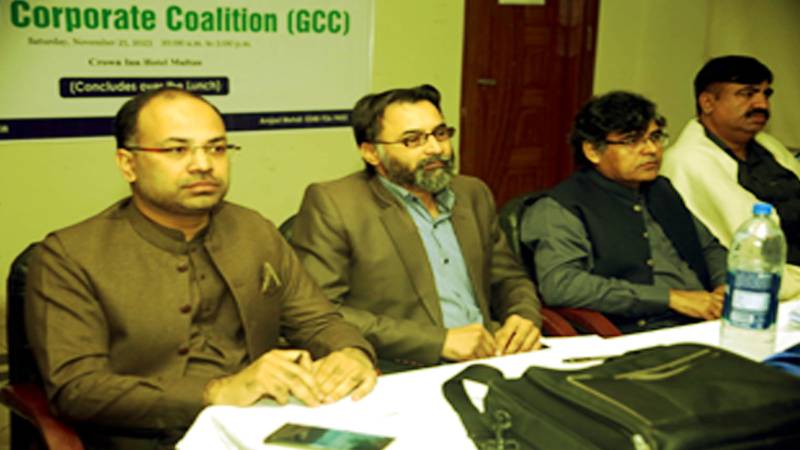
Surprising trends were witnessed among Pakistan’s commercial banks’ borrowers, including domestic, commercial, industrial, and small and medium entrepreneurs, according to a study conducted by an Islamabad-based policy research institute, “Alternate Development Services (ADS).”
In the report titled "Green Financing: An Inceptive Analysis of Commercial Banks," ADS CEO Amjad Nazeer and co-author of the report said that consumers appear to be motivated either by minimizing the investment and operational cost or cutting down the amount of increasingly unaffordable bills rather than environmental concerns when considering switching over to solar energy. The finding was unveiled at a seminar on green financing and clean energy held in Multan earlier this week.
“Green financing, if sufficiently available, may promote human and environment-friendly practices and sustainable development in the country. Ideally, it facilitates projects entailing positive climatic effects, such as renewable and sustainable energy conservation and efficiency, abating pollution and land degradation, conserving water resources, and efficient waste management.”
The study provides a comprehensive overview of the current landscape of green and solar financing offered by commercial banks in Pakistan. It delineates that the number of banks offering green financing services has increased significantly during the last decade, with 40% of the commercial banks offering such services in 2021. The increased demand is driven by a combination of factors, including client demand, low-interest rates (if available), compliance with the State Bank’s green financing guidelines introduced in 2017, power interruptions and outages, the dwindling cost of solar panels, self-reliance, net-metering facilities, and the potential for evolving business opportunities.
While the growing interest in green financing is encouraging, the study also identifies several barriers to its widespread adoption, such as procedural constraints, a lack of awareness, the discontinuation of the KIBOR+4 scheme, and political instability. The study also highlights the importance of government incentives like awareness-raising, the provision of desired skills, low-interest rates, and net metering facilities in promoting the adoption of renewable energy resources.
These were the points of discussion at the study launch event, where industry leaders, environmental experts and activists, finance professionals, development professionals, and stakeholders gathered to discuss the thrust of the study and the future of green financing in Pakistan.
The event also served as a platform to address the pressing issue of smog in the city, which was adequately linked to carbon emissions from the industry, brick kilns, and transport sectors. Speakers emphasized the urgent need to minimize carbon footprints and transition to green and clean energy sources.
"The recent smog crisis in Multan is a stark reminder of the environmental consequences of our reliance on fossil fuels," stated Dr. Muhammad Sultan, an environmental and energy expert. "Green financing can play a pivotal role in accelerating the transition to cleaner energy sources and improving air quality in Multan and beyond."
In a striking revelation, environmental activist Jowdut Syed disclosed that Multan’s Environmental Protection Agency (EPA) does not even possess an air quality measuring instrument. During his speech, he lamented, “We have no idea how poisonous the air that we breathe in is." He suggested, “The Air Quality Index needs to be assumed as a first step to combat Multan's smog problem.”
The seminar concluded with a unanimous call for action to further promote green financing in Pakistan. In its move toward a more sustainable future, green financing will, undoubtedly, play a critical role for Pakistan. By addressing the challenges, seizing the opportunities, and fostering collaboration, Pakistan can position itself as a leader in the transition to a greener economy.

